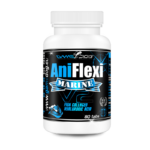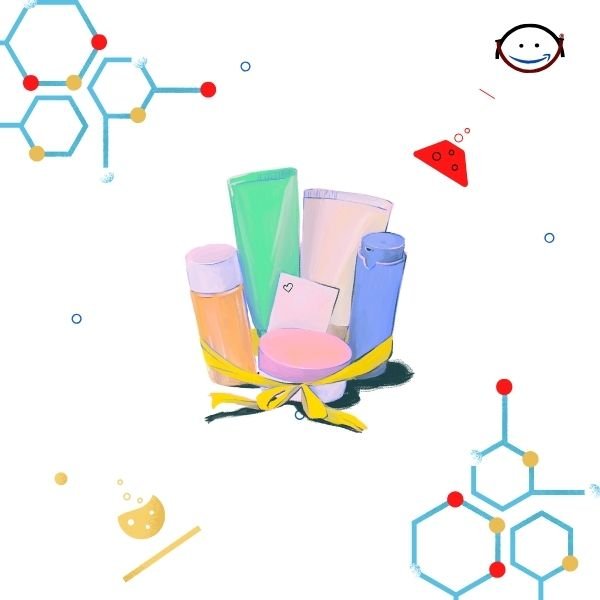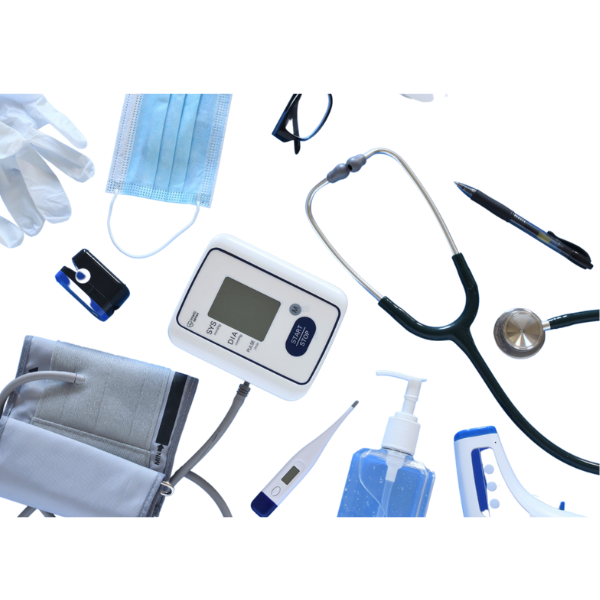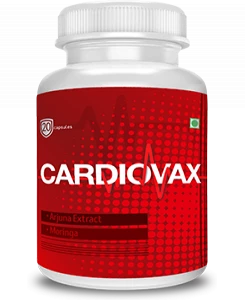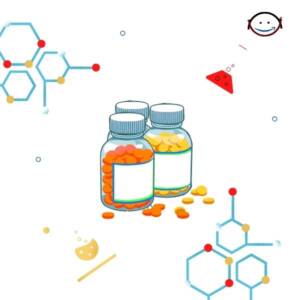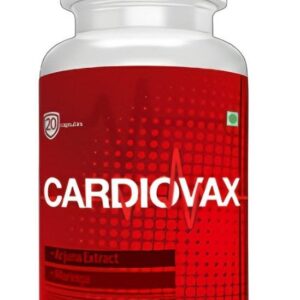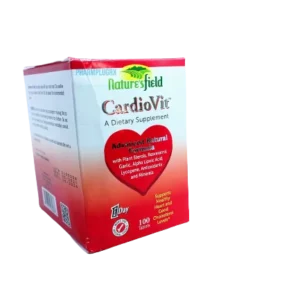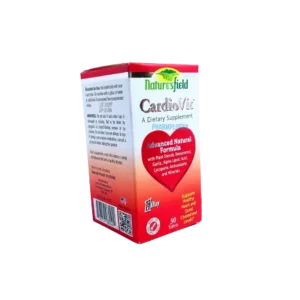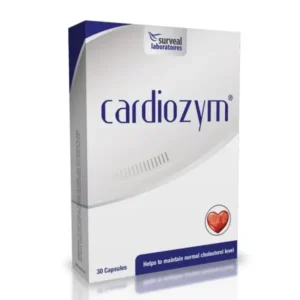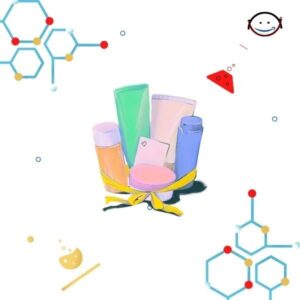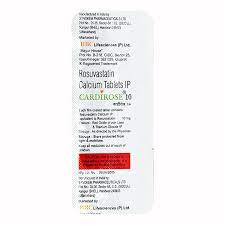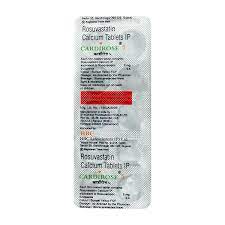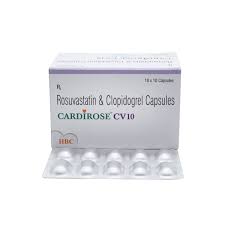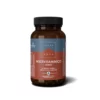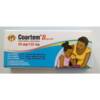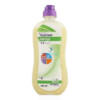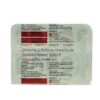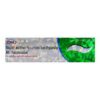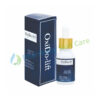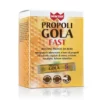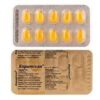-
TERRANOVA MULTIVIT MAN 50CPS ₦51,167.00 QTY: 1
-
Nesti Dante Immunity Hand Sanitizing Gel 500ml ₦49,900.00 QTY: 2
-
COARTEM 20/120MG (X12) ₦900.00 QTY: 1
-
Nutrison Energy - 1000ml ₦26,200.00 QTY: 1
-
GLYNAMIC M 1MG TABLETS 10?S ₦1,320.00 QTY: 1
-
RA THERMOSEAL FRESH MINT TOOTHPAST 100GM ₦2,619.50 QTY: 1
-
OxiDo-lift Instant Lift Serum 15ml ₦1,620.00 QTY: 1
-
Winter Propolis Throat Fast Wellness Throat 15 Sachets ₦23,560.00 QTY: 1
-
ESPUMISAN GOLD CAPSULE ₦1,547.00 QTY: 1
Customer matched zone "Lagos Delivery Options"
Sort by:
61441–61456 of 365305 Results
-
SaleCardiovax?; Product Code: Car75_NG; COD ? Cash On Delivery; Safe and natural product Warnings Caution: individual intolerance of components is possible.Store in a cool, dry, dark place for no longer than 1 year. View moreSku: 1717793171-55
Cardiovax
₦25,980.00Original price was: ₦25,980.00.₦12,990.00Current price is: ₦12,990.00.₦25,980.00Original price was: ₦25,980.00.₦12,990.00Current price is: ₦12,990.00. Add to basket Quick View -
90 - Day Buyer Protection Money back guarantee 100% Quality Products Buy top standard Sanitized & Packaged Safely Choose for contactless deliverySku: 1698139903-70
Cardiovax 20mg
₦19,500.00 -
-
-
SaleCardiovit AT-102 SCM SP Includes SpirometrySku: 1725741373-60
Cardiovit AT-102 SCM SP Includes Spirometry
₦921,100,000.00Original price was: ₦921,100,000.00.₦764,840,000.00Current price is: ₦764,840,000.00.₦921,100,000.00Original price was: ₦921,100,000.00.₦764,840,000.00Current price is: ₦764,840,000.00. Add to basket Quick View -
-
-
-
-
SaleCardipin Plus 5 mg+50 mgAmlodipine & Atenolol is indicated in: Hypertension not controlled by monotherapy Angina pectoris & hypertension co-existing diseases Post MI patients Refractory angina pectoris where nitrate therapy has failed Theropeutic ClassCombined antihypertensive preparationsPharmacologyAmlodipine is a dihydropyridine calcium antagonist that inhibits the transmembrane influx of calcium ions into vascular smooth muscle and cardiac muscle; it has a greater effect on vascular muscle than on cardiac muscle. Amlodipine is a peripheral vasodilator that acts directly on vascular smooth muscle to cause a reduction in peripheral vascular resistance and reduction in blood pressure. Amlodipine reduces tone, decreases coronary vasoreactivity and lowers cardiac demand by reducing afterload. Atenolol is a cardio selective beta blocker. The cardio selectivity is dose related. Atenolol causes a reduction in blood pressure by lowering cardiac output, decreasing the plasma renin activity and sympathetic outflow from CNS. Atenolol also causes a reduction in myocardial oxygen demand by virtue of its negative inotropic and negative chronotropic effects.Dosage & Administration of Cardipin Plus 5 mg+50 mgThe recommended dosage is one tablet daily of (Amlodipine 5 mg & Atenolol 50 mg) or (Amlodipine 5 mg & Atenolol 25 mg). Depending upon the therapeutic response, titration of the dosage is recommended. In elderly patients, it is advisable to initiate the therapy with ? tablet of fixed dose combination of Amlodipine & Atenolol (i.e. 2.5 mg of Amlodipine & 25 mg Atenolol).Interaction of Cardipin Plus 5 mg+50 mgAmlodipine has been safely administered with thiazide diuretics, beta blockers, alpha blockers, angiotensin converting enzyme inhibitors, long-acting nitrates, sublingual glyceryl trinitrate, non-steroidal anti-inflammatory agents, antibiotics, and oral hypoglycemic agents. In vitro data from studies with human plasma indicate that amlodipine has no effect on protein binding of the drugs tested (Digoxin, Phenytoin, Warfarin, or Indomethacin). Atenolol reduces the clearance of Disopyramide by 20%. Additive negative inotropic effects on the heart may be produced. At doses of 1 gm and above, Ampicillin may reduce Atenolol levels. Beta-blockers may decrease tissue sensitivity to Insulin and inhibit Insulin secretion, e.g. in response to oral antidiabetics. Atenolol has less potential for these actions.ContraindicationsHypersensitivity to either component, sinus bradycardia, second and higher degrees of heart block, cardiogenic shock, hypotension, congestive heart failure, poor left ventricular function.Side Effects of Cardipin Plus 5 mg+50 mgThe combination of Amlodipine and Atenolol is well tolerated. Overall side effects include fatigue, headache, edema, nausea, drowsiness, anxiety and depression.Pregnancy & LactationAtenolol crosses the placenta. So it is contraindicated in pregnancy. It should be avoided during lactation.Precautions & WarningsAtenolol may mask the symptoms of hyperthyroidism. It may also mask the symptoms of hypoglycaemia, as well as enhance the effects of hypoglycaemic agents in patients with diabetes mellitus.Storage ConditionsStore in a cool dry place protected from light. Keep out of reach of children.Sku: 1736101460-2698
Cardipin Plus5 mg+50 mg
₦3,300.00Original price was: ₦3,300.00.₦2,970.00Current price is: ₦2,970.00.₦3,300.00Original price was: ₦3,300.00.₦2,970.00Current price is: ₦2,970.00. Add to basket Quick View -
SaleCardipin 5 mgCardipin 5 mg is a calcium channel blocker and may be used alone or in combination with other antihypertensive and antianginal agents for the treatment of Hypertension and Coronary Artery Disease (such as Chronic Stable Angina, Vasospastic Angina and Angiographically Documented Coronary Artery Disease in patients without heart failure or an ejection fraction 1.0% are headache, fatigue, nausea, abdominal pain and somnolence.Pregnancy & LactationPregnancy Category C. There are no adequate and well-controlled studies of Cardipin 5 mg in pregnant women. Cardipin 5 mg should be used during pregnancy only if the potential benefit justifies the potential risk to the fetus. It is not known whether Cardipin 5 mg is excreted in human milk. In the absence of this information, it is recommended that nursing be discontinued while Cardipin 5 mg is administered.Precautions & WarningsSymptomatic hypotension is possible, particularly in patients with severe aortic stenosis. However, because of the gradual onset of action, acute hypotension is unlikely. Worsening angina and acute myocardial infarction can develop after starting or increasing the dose of Cardipin 5 mg, particularly in patients with severe obstructive coronary artery disease. Titrate slowly when administering calcium channel blockers to patients with severe hepatic impairment.Overdose Effects of Cardipin 5 mgIn humans, experience with intentional overdose is limited.Symptoms: Available data suggest that large overdosage could result in excessive peripheral vasodilatation and possibly reflex tachycardia. Marked and probably prolonged systemic hypotension up to and including shock with fatal outcome have been reported.Management: Clinically significant hypotension due to Cardipin 5 mg overdosage calls for active cardiovascular support including frequent monitoring of cardiac and respiratory function, elevation of extremities, and attention to circulating fluid volume and urine output.?A vasoconstrictor may be helpful in restoring vascular tone and blood pressure, provided that there is no contraindication to its use. Intravenous calcium gluconate may be beneficial in reversing the effects of calcium channel blockade. Gastric lavage may be worthwhile in some cases. In healthy volunteers the use of charcoal up to 2 hours after administration of Cardipin 5 mg 10 mg has been shown to reduce the absorption rate of Cardipin 5 mg. Since Cardipin 5 mg is highly protein-bound, dialysis is not likely to be of benefit.Storage Conditionskeep in a dry place away from light and heat. Keep out of the reach of children.Use In Special PopulationsChildren with hypertension from 6 years to 17 years of age: 2.5 mg once daily as a starting dose, up-titrated to 5 mg once daily if blood pressure goal is not achieved after 4 weeks. Doses in excess of 5 mg daily have not been studied in pediatric patients.Children under 6 years old: ?The effect of Cardipin 5 mg on blood pressure in patients less than 6 years of age is not known.Elderly: Cardipin 5 mg used at similar doses in elderly or younger patients is equally well tolerated. Normal dosage regimens are recommended in the elderly, but increase of the dosage should take place with care.Renal impairment: Changes in Cardipin 5 mg plasma concentrations are not correlated with degree of renal impairment, therefore the normal dosage is recommended. Cardipin 5 mg is not dialysable.Hepatic impairment: Dosage recommendations have not been established in patients with mild to moderate hepatic impairment; therefore dose selection should be cautions and should start at the lower end of the dosing range. The pharmacokinetics of Cardipin 5 mg have not been studied in severe hepatic impairment. Cardipin 5 mg should be initiated at the lowest dose (2.5 mg once daily) and titrated slowly in patients with severe hepatic impairment.Sku: 1736102340-2951
Cardipin5 mg
₦275.00Original price was: ₦275.00.₦247.50Current price is: ₦247.50. -
SaleCardiron 200 mgAmiodarone tablet is used for many serious arrhythmias of the heart including ventricular fibrillation, ventricular tachycardia, atrial fibrillation, and atrial flutter.Amiodarone injection is an antiarrhythmic agent indicated for initiation of treatment ... Read moreAmiodarone tablet is used for many serious arrhythmias of the heart including ventricular fibrillation, ventricular tachycardia, atrial fibrillation, and atrial flutter.Amiodarone injection is an antiarrhythmic agent indicated for initiation of treatment and prophylaxis of frequently recurring ventricular fibrillation (VF) and hemodynamically unstable ventricular tachycardia (VT) in patients refractory to other therapy.Theropeutic ClassPotassium channel blockersPharmacologyIn animals, Amiodarone HCl is effective in the prevention or suppression of experimentally induced arrhythmias. The antiarrhythmic effect of Amiodarone may be due to at least two major properties: A prolongation of the myocardial cell-action potential duration and refractory period Non-competitive antagonism of ?- and ?-adrenoceptors. Amiodarone prolongs the duration of the action potential of all cardiac fibers while causing minimal reduction of dV/dt (maximal upstroke velocity of the action potential). The refractory period is prolonged in all cardiac tissues. Amiodarone increases the cardiac refractory period without influencing resting membrane potential, except in automatic cells where the slope of the prepotential is reduced, generally reducing automaticity. These electrophysiologic effects are reflected in a decreased sinus rate of 15 to 20%, increased PR and QT intervals of about 10%, the development of U-waves, and changes in T-wave contour. These changes should not require discontinuation of Amiodarone as they are evidence of its pharmacological action, although Amiodarone can cause marked sinus bradycardia or sinus arrest and heart block. On rare occasions, QT prolongation has been associated with worsening of arrhythmiaDosage & Administration of Cardiron 200 mgOral dose is 200 mg 3 times daily for 1 week reduced to 200 mg twice daily or the minimum required to control arrhythmia.Dosage of Cardiron 200 mgTablet: 200 mg 3 times daily for 1 week reduced to 200 mg twice daily or the minimum required to control arrhythmia. Amiodarone is usually given in several daily doses to minimize stomach upset which is seen more frequently with higher doses. For this same reason, it is also recommended that Amiodarone should be taken with meals.Injection: The recommended starting dose is about 1000 mg over the first 24 hours of therapy, delivered by the following infusion regimen: Initial Load: 150 mg per 100 mL (in D5W or Normal Saline) infused over 10 minutes Followed by: 1 mg/min for 6 hours Followed by: 0.5 mg/min thereafter In the event of breakthrough episodes of VF or hemodynamically unstable VT: Repeat the Initial Load described above as needed (infused over 10 minutes). Increase the rate of maintenance infusion to achieve effective arrhythmia suppression.Interaction of Cardiron 200 mgAmiodarone may interact with b blockers such as Atenolol, Propranolol, Metoprolol, or certain calcium channel blockers, such as Verapamil or Diltiazem, resulting in an excessively slow heart rate. Amiodarone increases the blood levels of Digoxin when the two drugs are given together. Flecainide blood concentrations increase by more than 50% with Amiodarone. Procainamide and Quinidine concentrations increase by 30-50% during the first week of Amiodarone therapy. Amiodarone also can interact with tricyclic antidepressants (TCA). Amiodarone interacts with Warfarin and increases the risk of bleeding. Amiodarone inhibits the metabolism of Dextromethorphan.ContraindicationsAmiodarone is contraindicated in patients with cardiogenic shock; severe sinus-node dysfunction, causing marked sinus bradycardia; second- or third degree atrioventricular block; and when episodes of bradycardia have caused syncope (except when used in conjunction with a pacemaker). Amiodarone is contraindicated in patients with a known hypersensitivity to the drug or to any of its components, including iodine.Side Effects of Cardiron 200 mgThe most severe side effects of Amiodarone therapy are related to the lungs. These reactions can be fatal. Patients should report any symptoms of cough, fever, or painful breathing. Although quite rare, fatal liver toxicity may occur with Amiodarone therapy. Reversible corneal microdeposits (sometimes with night glare), rarely impaired vision due to optic neuritis; peripheral neuropathy and myopathy (usually reversible on withdrawal); bradycardia and conduction disturbances; phototoxicity and rarely persistent skin discolouration; hypothyroidism, hyperthyroidism; raised serum transaminases; jaundice, hepatitis and cirrhosis are reported. Other rare complaints are nausea, vomiting, metallic taste, tremor, sweating, vertigo, headache, sleeplessness, fatigue, alopecia, benign raised intracranial pressure, ataxia, rashes, vasculitis, renal involvement, thrombocytopenia, haemolytic or aplastic anaemia. In some cases, dose of Amiodarone may be reduced. In other cases, Amiodarone therapy may need to be stopped.Pregnancy & LactationShould not be administered during pregnancy and lactation.Overdose Effects of Cardiron 200 mgThere have been cases, some fatal, of Amiodarone overdose. In addition to general supportive measures, the patient's cardiac rhythm and blood pressure should be monitored, and if bradycardia ensues, a ?-adrenergic agonist or a pacemaker may be used. Hypotension with inadequate tissue perfusion should be treated with positive inotropic and/or vasopressor agents. Neither Amiodarone nor its metabolite is dialyzable. The acute oral LD50 of Amiodarone HCl in mice and rats is greater than 3,000 mg/kg.Storage ConditionsKeep below 30?C temperature, away from light & moisture. Keep out of the reach of children.Use In Special PopulationsPediatric Use: The safety and effectiveness of Amiodarone HCl tablets in pediatric patients have not been established.Geriatric Use: Clinical studies of Amiodarone HCl tablets did not include sufficient numbers of subjects aged 65 and over to determine whether they respond differently from younger subjects. Other reported clinical experience has not identified differences in responses between the elderly and younger patients. In general, dose selection for an elderly patient should be cautious, usually starting at the low end of the dosing range, reflecting the greater frequency of decreased hepatic, renal, or cardiac function, and of concomitant disease or other drug therapy.Drug ClassesPotassium channel blockersMode Of ActionCardiron 200 mg is used to correct abnormal rhythms of the heart. Amiodarone is considered a "broad spectrum" antiarrhythmic medication. The most important electrical effects of the drug includes : a delay in the rate at which the heart?s electrical system "recharges" after the heart contracts (repolarisation); a prolongation in the electrical phase during which the heart?s muscle cells are electrically stimulated (action potential); a slowing of the speed of electrical conduction (how fast each individual impulse is conducted through the heart?s electrical system); a reduction in the rapidity of firing of the normal generator of electrical impulses in the heart (the heart?s pacemaker); and a slowing of conduction through various specialised electrical pathways (called accessory pathways). In addition to being an antiarrhythmic medication, Amiodarone also causes blood vessels to dilate. Because of this effect it also may be of benefit in patients with? congestive heart failure. This effect can result in drop of blood pressure.PregnancyIn general, Amiodarone should not be administered during pregnancy because there have been reports of hypo or hyperthyroidism in infants from oral Amiodarone use during pregnancy. If Amiodarone use is considered essential, however, the patient should be warned of the risk to the foetus. The safe use of Amiodarone in lactating women has not been established.Sku: 1736102045-2864
Cardiron200 mg
₦440.00Original price was: ₦440.00.₦396.00Current price is: ₦396.00. -
SaleRosuvastatin 10 MGSku: 1737085799-3331
CARDIROSE 10MG TAB 10`S
₦3,850.00Original price was: ₦3,850.00.₦3,176.25Current price is: ₦3,176.25.₦3,850.00Original price was: ₦3,850.00.₦3,176.25Current price is: ₦3,176.25. Add to basket Quick View -
SaleRosuvastatin 20 MGSku: 1737085796-3330
CARDIROSE 20MG TAB 10`S
₦6,463.50Original price was: ₦6,463.50.₦5,332.50Current price is: ₦5,332.50.₦6,463.50Original price was: ₦6,463.50.₦5,332.50Current price is: ₦5,332.50. Add to basket Quick View -
SaleRosuvastatin 5 MGSku: 1737085790-3329
CARDIROSE 5MG TAB 10`S
₦1,887.50Original price was: ₦1,887.50.₦1,557.25Current price is: ₦1,557.25.₦1,887.50Original price was: ₦1,887.50.₦1,557.25Current price is: ₦1,557.25. Add to basket Quick View -
SaleClopidogrel 75 MG+Rosuvastatin 10 MGSku: 1737085868-3344
CARDIROSE CV 10MG CAP 10`S
₦4,912.50Original price was: ₦4,912.50.₦4,052.75Current price is: ₦4,052.75.₦4,912.50Original price was: ₦4,912.50.₦4,052.75Current price is: ₦4,052.75. Add to basket Quick View
